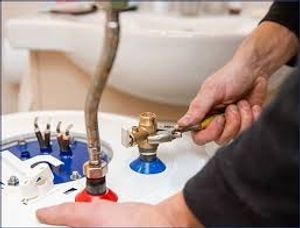Combi boilers, short for combination boilers, have become a popular choice for homeowners and businesses due to their efficiency, compact design, and ability to provide both heating and hot water on demand. This article explores the functionality of combi boilers, their benefits, considerations for installation, and why they might be the right choice for your property.
A combi boiler is a single, compact unit that combines the functions of a central heating boiler and a water heater. Unlike traditional systems that require separate water tanks and a boiler, combi boilers do not store hot water. Instead, they heat water directly from the mains when a hot water tap is turned on. This on-demand approach to heating water makes combi boilers highly efficient and suitable for properties with limited space. visit here
One of the primary advantages of a combi boiler is its efficiency. By heating water only when it is needed, combi boilers eliminate the energy losses associated with storing hot water in a tank. Traditional systems often suffer from "standing heat loss," where heat escapes from the stored water over time, requiring the boiler to reheat the water periodically. Combi boilers avoid this inefficiency, leading to lower energy consumption and reduced utility bills. Modern combi boilers are designed with advanced technology to maximize energy efficiency, often achieving efficiencies of over 90%. This means that a significant portion of the energy consumed is converted directly into usable heat, making them an environmentally friendly option.
The compact design of combi boilers is another significant benefit. Traditional heating systems with separate water tanks can take up considerable space, which is a disadvantage in smaller homes or apartments. Combi boilers, however, are designed to fit into small spaces such as kitchen cupboards or airing cupboards. This space-saving feature makes them ideal for properties with limited room. Additionally, the simplicity of the system, with fewer components and no need for a hot water cylinder, reduces installation time and cost.
Another key benefit of combi boilers is the provision of hot water on demand. Unlike conventional systems that may require time to heat a tank of water, a combi boiler ensures an immediate supply of hot water whenever a tap is turned on. This instant availability of hot water is convenient for daily activities such as showering and washing dishes, enhancing the overall comfort and convenience of the household. The ability to provide continuous hot water without the need for a separate storage tank also means there is no risk of running out of hot water during high usage periods.
While combi boilers offer numerous advantages, there are also considerations to keep in mind when deciding if they are the right choice for your property. One potential limitation is that the efficiency of a combi boiler can be affected by the flow rate of the incoming mains water supply. If the water pressure is low, the boiler may struggle to provide a sufficient supply of hot water, especially if multiple outlets are in use simultaneously. It is important to ensure that the mains water pressure in your area is adequate before installing a combi boiler.
Additionally, combi boilers may not be suitable for larger homes with high hot water demands. In such cases, a system boiler with a separate hot water cylinder might be more appropriate. System boilers store hot water in a cylinder, which can accommodate higher demands and provide a steady supply of hot water to multiple outlets simultaneously. However, for smaller households with moderate hot water needs, a combi boiler is often the most efficient and practical solution.
Installation of a combi boiler should always be carried out by a qualified and Gas Safe registered engineer. Proper installation is crucial to ensure the safety, efficiency, and longevity of the boiler. During the installation process, the engineer will assess the existing heating system, remove any old equipment, and install the new combi boiler in a suitable location. They will also check the water pressure and flow rate to ensure the boiler will operate effectively.
Regular maintenance is essential to keep a combi boiler running efficiently and safely. Annual servicing by a qualified engineer can help identify potential issues before they become serious problems. The service typically includes checking the boiler's components, cleaning parts where necessary, and ensuring the system is operating at optimal efficiency. Regular maintenance not only extends the life of the boiler but also helps maintain its energy efficiency, saving money on energy bills in the long run.
When selecting a combi boiler, it is important to consider the size and heating output required for your property. Boilers come in various sizes and capacities, and choosing the right one depends on factors such as the number of radiators, bathrooms, and overall hot water demand. An undersized boiler may struggle to provide adequate heating and hot water, while an oversized boiler may be less efficient and more costly to run. Consulting with a qualified heating engineer can help determine the appropriate size and type of boiler for your specific needs.
